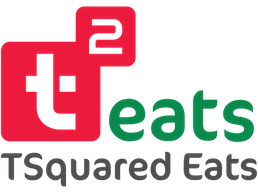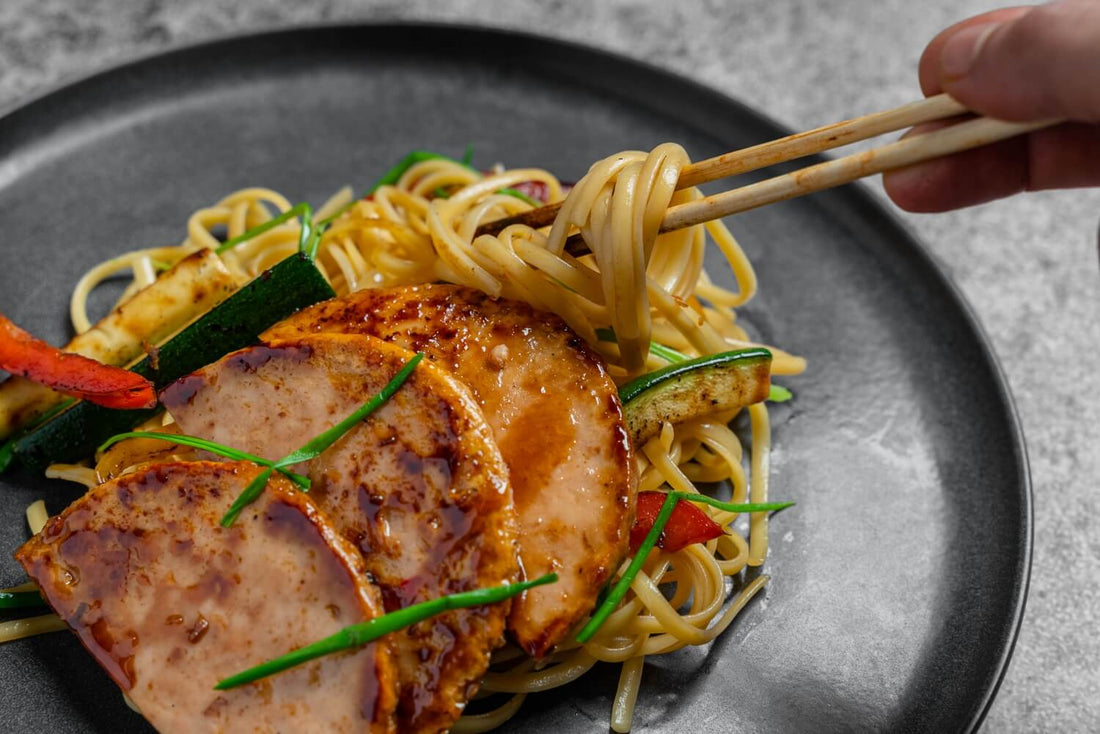Protein is an essential macronutrient that supports muscle repair, metabolic function, and overall well-being. While many assume a vegetarian diet lacks sufficient protein, there are numerous plant-based protein sources that can meet daily nutritional requirements.
This guide will help you understand:
1. The role of protein in the body
2. The best high-protein vegetarian foods
3. How to create a balanced meal plan
Whether you're an athlete, a fitness enthusiast, or simply looking to improve your diet, this guide will provide the tools to help you meet your protein needs effectively.
Understanding Protein and Its Importance
Protein consists of amino acids, the building blocks of the body’s tissues. It is crucial for:
1. Muscle growth & repair – Especially after exercise
2. Metabolism & energy – Supporting bodily functions
3. Hormone & enzyme production – Essential for digestion and cell function
4. Immune system health – Aiding in recovery and defence against infections
Since vegetarians do not consume meat, it’s important to include a variety of plant-based and dairy-based proteins to ensure the body gets all the necessary amino acids.
Best Vegetarian Protein Sources
There is a wide variety of vegetarian protein foods that provide substantial protein content. A balanced vegetarian diet should include a combination of the following protein-rich foods:
1. Legumes and Pulses

Legumes are protein powerhouses, ranking among the most protein-dense foods for vegetarians. They're also packed with fibre, making them a fantastic addition to any balanced diet.
-
Lentils – Approximately 18g of protein per cup.
Tip: Try different lentil varieties like red, green, or brown for diverse flavours and textures in your dishes. -
Chickpeas – Around 15g of protein per cup.
Tip: Roasted chickpeas make a crunchy, high-protein snack. -
Black beans – About 15g of protein per cup.
Tip: Black bean burgers are a delicious and satisfying meat alternative. -
Peas – 9g of protein per cup.
Tip: Add peas to pasta dishes or salads for a quick protein boost.
2. Soy-Based Products

Soy products are excellent meat alternatives and provide all essential amino acids, making them complete proteins.
-
Tofu – 10g of protein per 100g serving.
Tip: Press tofu before cooking to remove excess water and improve its texture.
-
Tempeh – Around 19g of protein per 100g.
Tip: Marinate tempeh for a more robust flavour before grilling or stir-frying.
-
Edamame – 11g of protein per cup.
Tip: Lightly salt edamame pods for a simple and healthy snack.
-
Soy milk – About 8g of protein per cup.
Tip: Use soy milk in smoothies or coffee as a dairy-free alternative.
3. Dairy Products
Dairy products are excellent protein sources for vegetarians and provide calcium for bone health.
-
Greek yoghurt – Up to 20g of protein per cup.
Tip: Choose plain Greek yoghurt and add your own fruit or honey to control sugar intake.
-
Cottage cheese – Approximately 14g of protein per half-cup.
Tip: Cottage cheese with sliced peaches makes a refreshing and protein-rich snack.
-
Cheese (cheddar, mozzarella, etc.) – Ranges from 7g of protein per ounce.
Tip: Opt for part-skim or reduced-fat cheese options to limit saturated fat intake.
4. Whole Grains

Whole grains offer protein, dietary fibre, vitamins, and minerals, making them a nutritional powerhouse.
-
Quinoa – 8g of protein per cup.
Tip: Rinse quinoa thoroughly before cooking to remove its natural coating, which can taste bitter. -
Oats – About 6g of protein per half-cup.
Tip: Overnight oats are a convenient and customizable breakfast option.
-
Brown rice – 5g of protein per cup.
Tip: Brown rice takes longer to cook than white rice but has a nuttier flavour and more nutrients.
5. Nuts and Seeds

Nuts and seeds are excellent sources of plant-based proteins and healthy fats, perfect for a nutritious snack.
-
Almonds – 6g of protein per ounce.
Tip: Almond butter is a great way to add protein to sandwiches or snacks.
-
Chia seeds – 4g of protein per two tablespoons.
Tip: Chia seeds can absorb liquid and form a gel, making them great for pudding or smoothies.
-
Flaxseeds – 5g of protein per two tablespoons.
Tip: Grind flaxseeds before use to improve digestibility and nutrient absorption.
-
Pumpkin seeds – 8g of protein per ounce.
Tip: Roasted pumpkin seeds are a delicious and crunchy snack.
6. Vegetables
Certain vegetables offer surprising amounts of protein in addition to vitamins and minerals.
-
Spinach – About 5g of protein per cup.
Tip: Add spinach to smoothies or omelettes for a nutrient and protein boost. -
Broccoli – 3g of protein per cup.
Tip: Steaming broccoli retains more nutrients than boiling it. -
Brussels sprouts – Around 3g of protein per cup.
Tip: Roasted Brussels sprouts with a drizzle of balsamic vinegar are a flavorful side dish.
High-Protein Vegetarian Diet Plan
To help structure a well-balanced meal plan, consider incorporating the following vegetarian protein diet into your routine:
Breakfast:
- Oatmeal with chia seeds and almonds - A fibre-rich, protein-packed start.
- Greek yoghurt topped with flaxseeds and berries - High protein + probiotics
Lunch:
- Quinoa salad with chickpeas, spinach, and feta cheese - A complete protein meal.
- Tofu stir-fry with brown rice and steamed vegetables - Balanced & Nutrient-dense.
Snacks:
- Hummus with whole-grain crackers – High-protein, fibre-rich snack
- Roasted pumpkin seeds and almonds – Quick protein boost
Dinner:
- Lentil soup paired with whole wheat bread - A hearty and nutritious meal.
- Grilled tempeh served with steamed broccoli and quinoa - Adequate protein intake.
High-Protein Vegetarian Diet for Weight Loss

For weight loss, high-protein foods help with satiety, muscle retention, and metabolism. The best vegetarian protein sources for fat loss include:
- Low-fat Greek yoghurt – High protein, low calories
- Lentil soups & stir-fries – Nutrient-dense & filling
- Roasted chickpeas – Healthy, crunchy snack
- Tofu-based dishes with fresh vegetables – Balanced & low-calorie
💡 Tip: Prioritise high-fiber, protein-rich meals to stay fuller for longer.
Conclusion

A high-protein vegetarian diet can provide all the essential nutrients needed for muscle growth, energy, and overall health. By incorporating a variety of plant-based and dairy protein sources, vegetarians can easily meet their protein needs without relying on meat. Legumes, soy, dairy, whole grains, nuts, and vegetables serve as excellent sources of protein, and pairing different foods ensures a complete amino acid profile. Maintaining a balanced diet through proper meal planning and preparation makes it easier to sustain a high-protein vegetarian lifestyle. Additionally, specific dietary needs, such as pregnancy and weight loss, can be effectively managed with the right protein choices.
However, meal planning and preparation can sometimes feel overwhelming. If time, consistency, or variety become challenges, meal prep services like TSquared Eats can offer a convenient solution, providing nutrient-dense, protein-rich vegetarian meals without the hassle of cooking. For those unsure about their individual protein requirements, consulting a nutritionist is highly beneficial. A professional can tailor a personalized meal plan based on lifestyle, health goals, and dietary preferences, ensuring a well-balanced and effective diet.
With the right knowledge, tools, and support, following a high-protein vegetarian diet can be both simple and sustainable, helping you achieve optimal health, performance, and overall well-being in the long run.
Key Takeaways
- A vegetarian diet can provide sufficient protein through various plant-based sources.
- Excellent vegetarian protein sources include legumes, soy, dairy, whole grains, nuts, and vegetables.
- A balanced meal plan incorporating these sources is key to meeting your daily protein needs.
- For weight loss, prioritize lean, high-protein vegetarian options.
- Consulting a nutritionist can provide personalized protein recommendations.
Pro tip: Meal prep services can help maintain a consistent, protein-rich diet.

